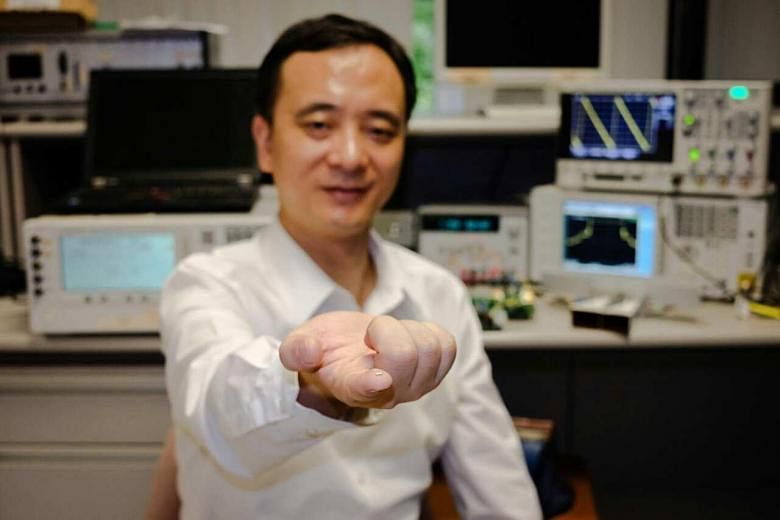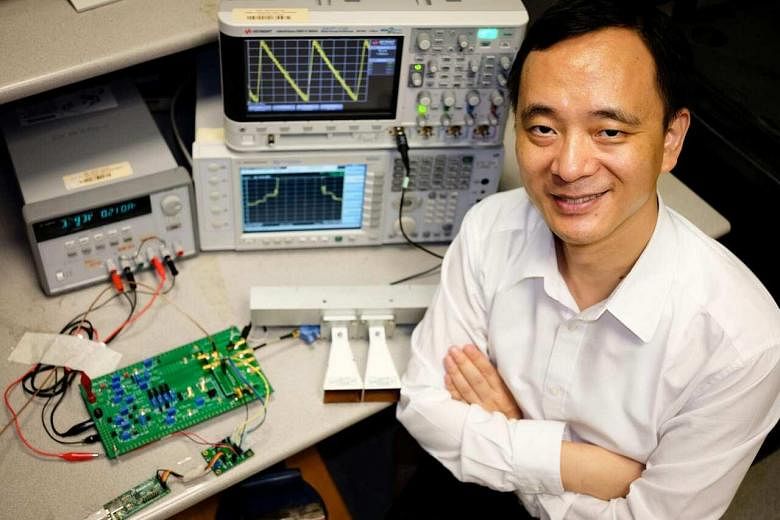SINGAPORE - Scientists at Nanyang Technological University (NTU) have developed a microchip that allows the production of tiny radar cameras that are 100 times smaller than their predecessors. This was revealed in a media briefing at NTU on Tuesday (Feb 23).
Radar cameras are used commonly in satellites, and the new technology essentially shrinks previous 200kg cameras down to a size that fits into the palm of the hand, with the new chip weighing less than 100g.
Also known as Synthetic Aperture Radar, the cameras are usually installed in satellites and aircraft to produce detailed images of the earth's surface. These images serve many purposes, such as monitoring traffic congestion and urban density, as well as tracking natural disasters.
Assistant Professor Zheng Yuanjin, who led the research team of six from NTU's School of Electrical and Electronic Engineering which developed the chip, emphasised its advantage over traditional systems.
Despite its size, the tiny radar cameras can outperform older counterparts by producing similar, if not higher quality images.
Due to the huge cut in size, the new radar cameras are 20 times cheaper to produce and consume at least 75 per cent less power than before.
The new technology was showcased at the International Solid-State Circuits Conference held in San Francisco, California, earlier this month. Since then, key industry players such as US space company Space X and Japanese electronic giant Panasonic have indicated interest in the technology.
NTU has now secured $2.5 million in research funding from Singapore government agencies, as it seeks to develop the technology even further to be used in new Singapore satellites.




